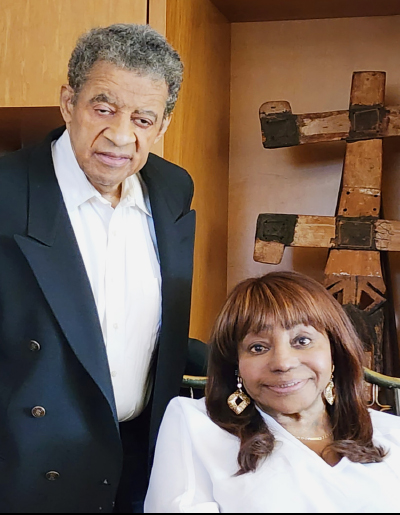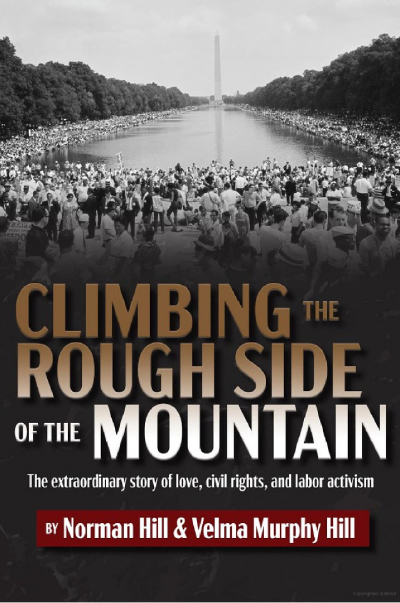A LOVE STORY
How Norman Hill & Velma Murphy Hill Conquered All
Their story demonstrates how love can truly conquer all. After Velma Murphy was knocked unconscious by a brick thrown by an angry supremacist, she was carried to safety by her now husband, Norman Hill. Their six-decade love story is filled with turmoil, tragedy, triumph, and inspiration as they battled (and continue the fight) for civil rights and fair labor.

In their new book Climbing the Rough Side of the Mountain, the Hills share stories from the frontline when they faced racial segregation in the 1960s, working alongside Dr. Martin Luther King, Jr., Bayard Rustin, and crossing paths with Malcolm X, among many others. Some of their most significant accomplishments happened here in New York City, where the duo calls home.
We sat down with the Hills and reflected on some of their most incredible memories and what lessons they believe can be applied to today’s political climate as we battle for fairness and diversity.
What made you author this book, and why now?
Our extraordinary story of over six decades of life, love, civil rights, and labor activism would be exciting and informative. The movement’s history that we put forth provides essential lessons for current and future activists and can serve as a basis for confronting the movement’s current and future challenges.
What are some uphill battles you fought decades ago that we are still fighting?
In the early 1960s, through the local Congress of Racial Equality group, we pressed for integrating the Inglewood Public School system. Public school integration is a current unmet goal in cities throughout the country. Through the A. Philip Randolph Institute, we have conducted, coordinated, and directed voter participation campaigns to maximize Black turnout in local, state, and national elections. Such an effort needs to be continued through current and future elections.
You stood alongside Dr. King and many other prominent leaders for diversity—what do you think they would say about our current climate regarding racial tensions?
I think that our mentors, such as A. Philip Randolph and Bayard Rustin, would promote aggressive and militant action by minorities in such a way as to generate majority support through coalition politics. Coalition politics involve multi-racial action emphasizing common or mutual interests. They would emphasize a multi-racial thrust politically, focusing on common economic self-interests.

Can you share some key events in New York City you participated in? What stands out, and what can still be learned?
The most noteworthy event in which we were involved was the organization of the March on Washington for Jobs and Freedom in 1963. What stands out is the brilliant organizational direction of Bayard Rustin and the use of a coalition of Civil Rights, religious, and unions to generate a great crusade. What can be carried forward from the March on Washington is that the problems facing minorities are not merely ethnic but economic and social, requiring political action. Today, the economic and social issues need to be addressed, as was true then, on a coalition basis, with the essence or core of the coalition being an alliance between minority organizations and the labor movement.
What are the top three lessons you hope your readers walk away with as it pertains to Black history and equality?
First, any group that is mistreated, oppressed, or discriminated against must take the initiative to challenge the unfair and unjust status quo. Secondly, the pursuit of racial equality and economic justice requires aggressive militant action by Blacks in such a way as to generate majority support. Finally, the barriers that Black people have faced are both race and class and must be addressed simultaneously.
For more information on Climbing The Rough Side Of The Mountain,
visit Post Hill Press at posthillpress.com





